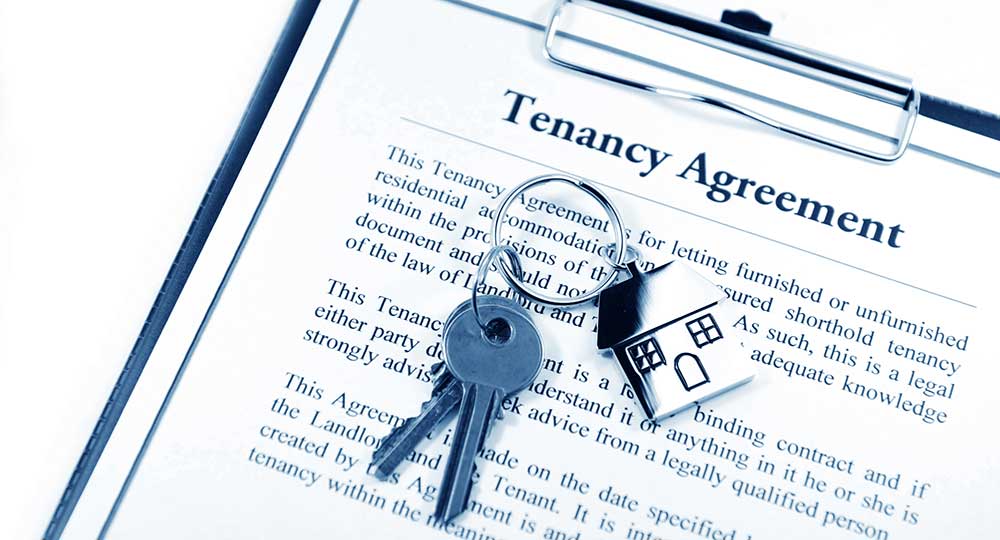In Malaysia, the relationship between tenants and landlords can be complex, especially when it comes to the security deposit. Have you encountered difficulties dealing with this issue as a landlord or tenant? This article will provide a helpful guide to navigating these challenges.
We will focus on the common disputes, specifically the withholding of security deposits and the reasons given for alleged damages. This discussion aims to clarify common issues and offer possible solutions, treating both perspectives fairly and impartially.
Legal Framework for Tenant-Landlord Disputes in Malaysia
The legal framework for tenant-landlord disputes in Malaysia is primarily governed by the Contracts Act 1950 and the Specific Relief Act 1950.
Contracts Act 1950
The Contracts Act 1950 provides the general rules for all contracts, including tenancy agreements. It outlines the obligations of both parties, the conditions for a valid contract, and the remedies available in case of a breach. This Act is crucial in disputes where the tenancy agreement is unclear or without written agreement.
Specific Relief Act 1950
The Specific Relief Act 1950 provides remedies for specific situations. For instance, it allows a landlord to seek a court order to evict a tenant who refuses to leave after the termination of the lease. It also allows a tenant to seek a court order to compel a landlord to carry out repairs necessary for the tenant’s use of the property.
Distress Act 1951
Another important law is the Distress Act 1951, which allows landlords to seize tenants’ belongings to recover unpaid rent. However, this can only be done with a court order, and strict rules are in place to prevent abuse of this power.
Security Deposits in Malaysia
The security deposit, often equivalent to two months’ rent, is held by the landlord as a form of protection against potential damages or unpaid rent. If the tenant breaches the contract or causes damage to the property beyond normal wear and tear, the landlord has the right to deduct the necessary amount from the security deposit to cover the costs.
Legal Framework
Malaysia does not have a specific law governing the handling of security deposits. However, the tenancy agreement terms usually provide the following clauses:
- Amount of security deposit required,
- Conditions under which it can be withheld
- Tenant’s responsibilities include property maintenance and repair.
Resolution of Disputes
Disputes over the withholding of deposits or property damage are usually resolved through negotiation or mediation. If these methods fail, the dispute can be taken to court. In court, the judge will interpret the tenancy agreement and apply the relevant laws to decide the case.
Common Issues Between Tenants and Landlords in Malaysia
One of the most common issues tenants and landlords face in Malaysia is the non-refund of security deposits. Tenants often complain that landlords withhold these deposits unreasonably, even when there is no significant damage to the property. This can lead to disputes and legal battles.
Unreasonable Withholding of Deposits
Landlords sometimes unjustly keep tenants’ deposits, holding onto the money without providing a valid explanation. For instance, a tenant might have meticulously cleaned the rental space before moving out, yet the landlord still claims there are damages that require deposit deductions. This practice can leave tenants feeling frustrated and financially strained.
Property Damage Disputes
In some cases, tenants may cause damages beyond normal wear and tear to the rental property. This damage can result in repair costs that surpass the amount of the initial security deposit. For example, a tenant might accidentally break a window while moving furniture, leading to a significant repair bill. Such disputes can escalate when the landlord and tenant disagree on the extent of the damage and the responsibility for repairs.
Rent Arrears
When tenants fall behind on their rent payments, known as rent arrears, it can create significant financial challenges for both the tenants and the landlords. For example, if a tenant loses their job unexpectedly, they may struggle to make ends meet and prioritise paying rent. This situation can lead to a domino effect of financial stress, potentially resulting in the landlord being unable to cover property expenses or mortgages, ultimately affecting their own financial stability.
In some cases, landlords may have to dip into their savings or take out loans to make up for the lost rental income.
Eviction Issues
The process of evicting a tenant can be a complicated and lengthy legal process that involves several steps. For instance, a landlord must provide a written notice to the tenant, stating the reason for the eviction and giving them a specific amount of time to rectify the situation or vacate the premises.
If the tenant does not comply, the landlord may need to file a lawsuit in court to obtain a legal eviction order. This process can be emotionally draining and expensive for both parties involved, with legal fees adding up and further straining relationships.
Additionally, the stigma associated with being evicted can make it challenging for tenants to secure housing in the future, perpetuating a cycle of instability and financial hardship.
Examples of Unreasonable Withholding of Deposits
In Malaysia, unreasonable withholding of deposits by landlords can take various forms:
- Minor Wear and Tear: Some landlords fail to refund deposits for minor wear and tear that is considered normal after a tenant has lived in a property. For instance, a landlord may keep a deposit citing the need to repaint walls that have scuff marks, even though this is generally expected to wear over time.
- Lack of Evidence for Breach Claims: Landlords sometimes unjustly keep deposits without providing clear evidence of a tenant’s breach of the lease agreement. For example, a tenant may be accused of causing damage to the property without any photographs or documentation to support such claims.
- Overcharging for Repairs: There are instances where landlords overcharge for repair costs in order to retain a larger portion of the deposit money. This could involve inflating prices for simple fixes like replacing a light bulb or patching a small hole in the wall, allowing the landlord to profit unfairly from the tenant’s deposit.
- Utility Bill Disputes: Tenants may find their deposits wrongfully withheld to cover unpaid utility bills, even when they have paid all charges in full. Landlords could claim utility costs are outstanding without providing legitimate proof of the alleged debt, leaving tenants in a predicament.
- Delay in Deposit Refund: Some landlords inconvenience tenants by not returning their deposits within the agreed timeframe. This delay can lead to financial hardship for tenants who rely on the return of their deposit to secure a new residence or alleviate financial burdens.
Available Resources
Despite these challenges, there are resources available for tenants and landlords in Malaysia. For instance, the National House Buyers Association provides tenant advice and support, while the Malaysian Institute of Estate Agents offers resources for landlords. Both parties are encouraged to seek legal advice when drafting the Tenancy Agreement to ensure their rights and responsibilities are clearly defined.
Call for Regulatory Oversight
Another common issue in Malaysia is the lack of a regulatory body overseeing landlord-tenant relationships. This lack of oversight can sometimes lead to unfair practices, such as landlords increasing rent without notice or tenants not maintaining the property adequately.
To address these issues, some have called for implementing a Residential Tenancy Act, similar to what exists in other countries. This Act is expected to provide more detailed regulations for the rental market, including rules for security deposits and property damage. It may significantly change the legal landscape for tenant-landlord disputes.
Conclusion
To wrap up, when dealing with tenant-landlord disagreements in Malaysia, understanding laws like the Contracts Act 1950 and the Specific Relief Act 1950 is key. While there are challenges such as unfair deposit holding and property damage conflicts, there are ways to find solutions through talking it out, mediation, or legal help. As we move forward, it’s important that tenants and landlords keep up to date and seek guidance for fair solutions in the rental market.



